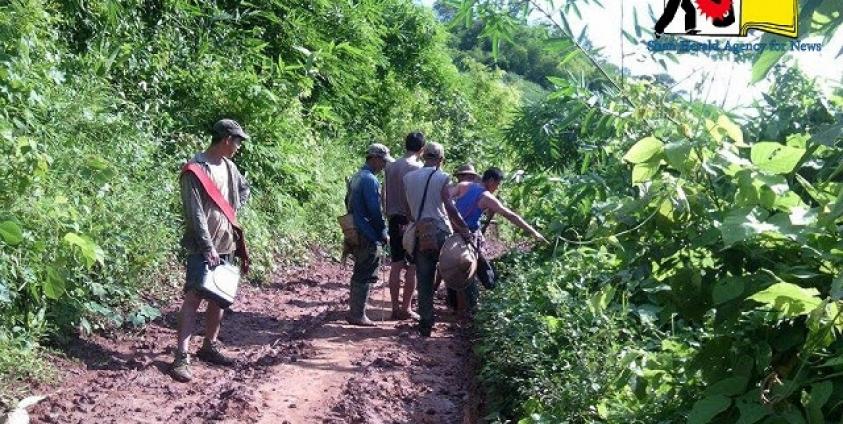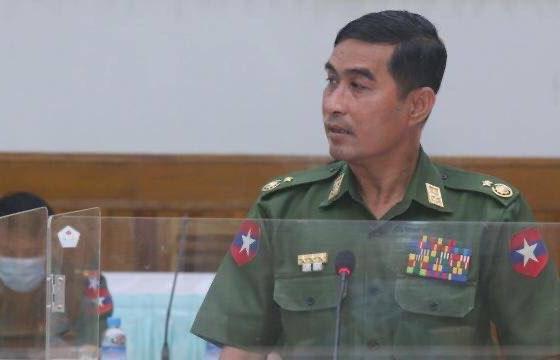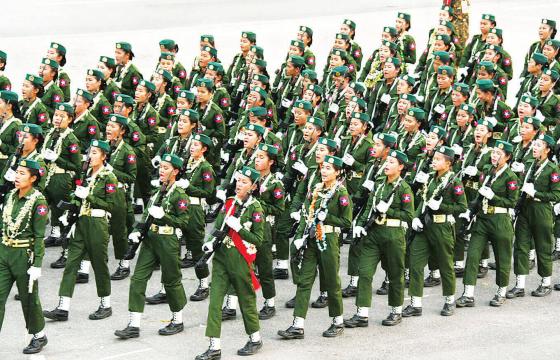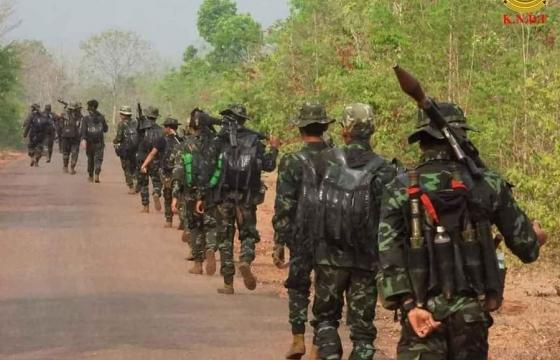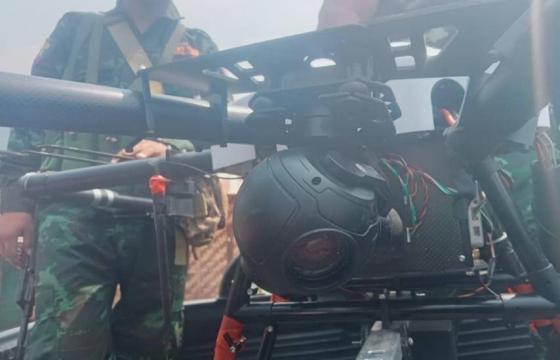Despite the ceasefire pact signed in 2015 between the government and eight ethnic armed groups, land mine clearance continues to lag. The Joint Ceasefire Monitoring Committing (JMC) said that only “trust” between parties can resolve the impasse and allow clearance operations to finally get under way.
“[Land mine clearance] has already been agreed to in principle. But in order to implement this agreement, negotiations must be held with the ethnic armed groups. That is what we are waiting for,” said U Min Zaw Oo, program director of the JMC.
As part of the Nationwide Ceasefire Agreement signed by eight groups in 2015, the signatories agreed to stop utilizing land mines, and cooperate on clearance campaigns.
IDPs from Kutkai, Kyaukme, Theinni and Namtu townships in northern Shan State cannot return to their villages due to land mines.
U Min Zaw Oo said that mine clearance programs are anticipated to be the most expensive post-conflict projects, but while technical and financial support has been offered, the clearance operations remain stymied by politics.
Major Sai Oo, of the Restoration Council Of Shan State and a member of the Shan State JMC, attributed delays to irregular meeting schedules.

IDPs from Kutkai, Kyaukme, Theinni and Namtu townships in northern Shan State cannot return to their villages due to land mines.
“We [the Shan State JMC] have not had regular monthly meetings due to budget difficulties, conflicting projects and responsibilities, and shifting time tables. So we have been unable to start implementing mine clearance,” he said.
According to Colonel Wunna Aung, secretary of the Union-level Joint Monitoring Committee (JMC-U), a budget for mine clearance has already submitted to the Joint Coordinating Body for Peace Process Funding (JCB), and per the program’s plan, a test run is supposed to be conducted in Kayin State in April.
According to U Min Zaw Oo however, the JMC’s responsibility is not to implement the mine clearance program, but to hash out a policy for it in negotiation with the ethnic armed groups and the Tatmadaw.
Myanmar is one of the few countries in the world to continue laying active land mines. According to the United Nations Myanmar Information Management Unit, seven out of the country’s fourteen states and regions are contaminated with mines and explosive remnants of war.
Refugees and internally displaced persons have cited land mines as a central concern preventing them from returning home. Residents displaced from Mong Hsu and Loilin townships in southern Shan State, and Kutkai, Kyaukme, Theinni and Namtu townships in northern Shan State cannot return to their villages due to land mines.
Myanmar is ranked third in the world for the number of annual land mine casualties, with 419 people reported as dying and 3156 people reported as injured between 1999 and 2015, according to the Landmine Monitor’s 2016 report.
Translated by Aong Jaeneh
Edited by Laignee Barron for BNI

